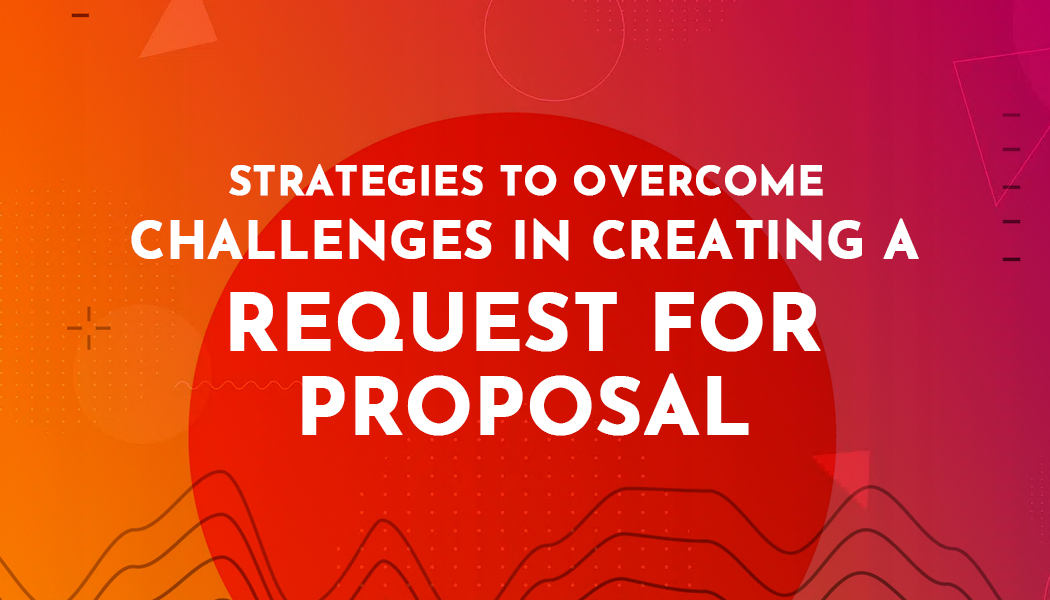Strategies To Overcome Challenges in Creating a Request for Proposal
In business, creating a compelling request for proposal (RFP) can be a pivotal factor in acquiring valuable contracts. The key lies in writing an RFP that resonates with potential suppliers. In this article, we explore the nature of RFPs and provide strategies to efficiently navigate them.
Defining Requests for Proposal
A request for proposal is a document that solicits proposals from potential suppliers. It's a detailed outline of the project's scope and specifications. For businesses, an RFP is also a way to portray their professionalism, best practices, and keen understanding of the scope of the project's requirements. The goal is to bridge the gap between the organization's needs and the suppliers' services, thereby ensuring a seamless and successful project implementation.
The Common Challenges While Creating a Request for Proposal

While creating an RFP may seem straightforward, it often presents a few challenges. These can range from effectively defining project needs and scopes, communicating these clearly to potential suppliers, upkeeping best practices, and setting transparent and measurable criteria for the evaluation of responses.
More often, businesses grapple with ensuring the RFP is comprehensive yet concise, so they avoid unneeded complexities that may deter potential suppliers. It also needs to respect suppliers' time and resources, as an overwhelming and excessively detailed RFP can be counterproductive.
Clear Communication in Requests for Proposal
Clear and concise communication is paramount while drafting an RFP. A well-articulated RFP speaks volumes about the organization’s seriousness and the project's viability. Using precise language, avoiding jargon, and keeping the tone professional yet engaging should be the watchwords.
The RFP should clearly convey the project's objectives, delivery timelines, expectations from suppliers, and key performance indicators, amongst other details. Furthermore, it's prudent to outline the contractual terms, required certifications, deadlines, and expected results in the RFP, and even specify that all documents be submitted in a single combined PDF. This can assist potential suppliers to better understand their responsibilities and deliverables. The key is to ensure the RFP is comprehensive.
When communication in the RFP is clear and succinct, it can motivate suppliers to respond with equally well-articulated and detailed proposals, increasing the chances of project success.
How To Create a Response Evaluation Strategy for Your Request for Proposal

Prioritizing criteria for evaluating RFP responses is pivotal. Criteria could be based on suppliers' expertise, their proposed solutions, pricing, delivery timelines, or their ability to align with the company's culture.
An evaluation strategy not only streamlines the vendor selection process but also ensures objective and impartial decision-making. This can lead to a more competent and compatible supplier partnership with the specified requirements.
It could be a good idea to involve multiple stakeholders in the response evaluation process to ensure diverse perspectives and a more balanced decision-making process.
The response evaluation phase is a crucial part of the RFP process as it directly influences your selection criteria for a suitable supplier for your project.
An Effective Request For Proposal Brings in More Effective Responses
A well-structured RFP with clear instructions can draw more responses. Moreover, suppliers can effectively showcase their capabilities in their responses, when they are clear about the qualifications.
Providing timelines, defining the scope of the project, setting evaluation criteria, and clearly stating the company’s expectations can result in higher-quality responses.
Overall, creating an effective request for proposal is a nuanced process that requires a keen understanding of business needs, clear communication, and strategic planning. By addressing these aspects, organizations can foster a successful RFP process.




